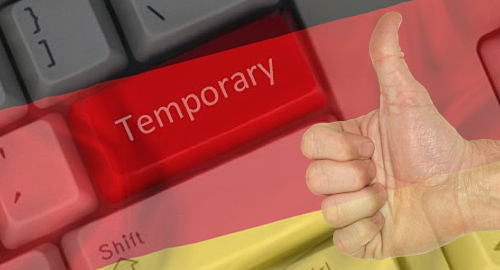 Germany’s 16 länder (states) have approved the latest version of the country’s federal gambling treaty, although the move only postpones the larger decisions that still have to be made.
Germany’s 16 länder (states) have approved the latest version of the country’s federal gambling treaty, although the move only postpones the larger decisions that still have to be made.
On Thursday, the heads of the 16 states held their latest conference in Berlin, where they voted in favor of extending the current ‘toleration’ of sports betting operations until June 30, 2021. Operators will be able to apply for licenses later this year, and these stopgap permits are expected to be issued starting January 1, 2020.
However, the new treaty will need to be approved by the European Commission, which has taken a dim view of Germany’s previous efforts at liberalizing its betting market. While Germany has agreed to scrap the 2012 treaty’s controversial cap on the number of licenses, the new treaty retains its equally controversial ban on online casino products.
The northern state of Schleswig-Holstein (S-H) differed from the other länder through its issue of a couple dozen online casino licenses seven years ago. These licenses have since expired, but S-H’s governing coalition recently introduced legislation that will extend the validity of these licenses to the June 30, 2021 expiration of the current stopgap treaty, with an idea that some nationwide consensus on the casino question can be achieved by that time.
Nonetheless, S-H parliamentarian Hans Jörn-Arp called the new treaty “a great success,” due to the other länder finally recognizing S-H’s right to go it alone on the casino front. Jörn-Arp said his state could now offer its licensees “a legally sound base that guarantees security of cash flows while protecting the consumer against data misuse and addiction.”
The German Sports Betting Association (DSWV) was less ebullient, issuing a statement saying the new treaty “does not solve the structural deficits” of the previous treaty. The DSWV urged state leaders to “continue the negotiations on a fundamental reform of German gambling regulation.”
The DSWV takes particular issue with the new treaty’s refusal to permit in-play betting, which in other mature markets can account for more than two-thirds of overall betting turnover. The DSWV also isn’t wild about the treaty limiting bettors to a €1k monthly betting cap, warning that the treaty will fail to achieve its aims if the states “completely ignore social realities and customer wishes.”
Some German lottery bosses are equally dissatisfied with state leaders, demanding they take a more aggressive stance towards internationally licensed online gambling operators who cater to German customers. Last week, Lotto Baden-Würtenberg boss Georg Wacker urged the government to “more forcefully” enforce the law, including by imposing domain- and payment-blocking on international operators.





